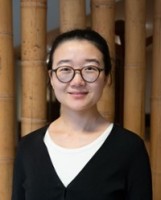Socio-economy & New Tech
Societal Challenges
Demography
Post-Doctoral Fellowships
United Kingdom
Fertility intentions and reality in East Asia
Ageing of populations results both from increases in longevity in old age and decreases in the birth rate. A drop in the Total Fertility Rate (TFR) to around 2 children per woman eventually leads to the end of rapid population growth and has largely positive social and economic consequences. In contrast, very low fertility produces in the medium term not only population decline but populations with extremely aged age pyramids. East Asian countries currently have some of the lowest Total Fertility Rates in the world. Furthermore, in urban China, recent estimates suggest that more than half a billion people are living in areas with ‘lowest-low’ fertility (less than 1.3 children per woman) – even where young couples are allowed a second child. However, the stated ideal family size (IFS) in East Asia – as with most OECD countries – is around two, suggesting there may be an ‘unmet need’ for children.
The goal of Dr. Basten's research project is to explore demographic surveys and validate the key differences between sub-groups in terms of their ideal family sizes. Then, a qualitative investigation of these factors will enable a much deeper and more dynamic understanding of the role which past population policy interventions continue to play, and what the most effective policy interventions relating to family policy might be. Finally, a series of expert interviews will seek to develop and document an integrated understanding of the social and population policy possibilities likely to impact on fertility in the future, not least by introducing a dynamic scenarios approach to examine the possible feedback effects on policy of maintaining current fertility rates.
The goal of Dr. Basten's research project is to explore demographic surveys and validate the key differences between sub-groups in terms of their ideal family sizes. Then, a qualitative investigation of these factors will enable a much deeper and more dynamic understanding of the role which past population policy interventions continue to play, and what the most effective policy interventions relating to family policy might be. Finally, a series of expert interviews will seek to develop and document an integrated understanding of the social and population policy possibilities likely to impact on fertility in the future, not least by introducing a dynamic scenarios approach to examine the possible feedback effects on policy of maintaining current fertility rates.
Fertility intentions and reality in East Asia
To add or modify information on this page, please contact us at the following address: community.research@axa.com

Stuart
BASTEN
Institution
London School of Hygiene & Tropical Medicine
Country
United Kingdom
Nationality
British
Related articles
Socio-economy & New Tech
Societal Challenges
Artificial Intelligence & Emerging Technologies
Civil Society & Governance
Polarization & Social Divides
Ethical AI & Responsible Innovation
Post-Doctoral Fellowship
Hong Kong
Impact of Misinformation & Mistrust on Environmental Issues & Democracy: A Comparative Study
Environmental disasters and the way information about them is shared can affect how well democracy works and how people get... Read more

Minos Athanasios
KARYOTAKIS

